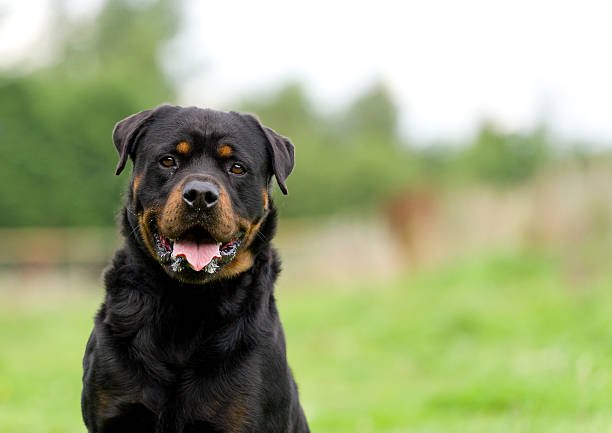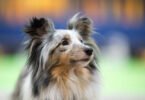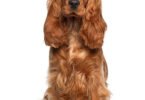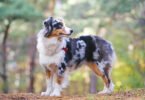The Rottweiler: A Powerful Guardian with a Gentle Heart
The Rottweiler, with its robust build, distinctive markings, and unwavering loyalty, stands as a breed that embodies both strength and gentleness. Known for its protective nature and versatility, the Rottweiler has a long history as a working dog, from herding livestock to serving in various roles, including police and search and rescue. In this exploration, we delve into the history, characteristics, and the remarkable qualities that define the Rottweiler.
Origin and History
The Rottweiler’s history can be traced back to the Roman Empire, where its ancestors were used as herding and guarding dogs for the Roman legions. As the Romans marched across Europe, these dogs were left in the region of Rottweil in southern Germany, where they continued to be used for herding and guarding livestock.
Over the centuries, the Rottweiler’s role evolved to that of a cattle drover and guard dog. The breed’s strong work ethic, intelligence, and protective instincts made it well-suited for these tasks. In the 20th century, the Rottweiler found new roles as a police and military dog, excelling in protection work, search and rescue, and as a loyal family companion.
Physical Characteristics
The Rottweiler is a large and powerful breed, known for its muscular build and distinctive black and tan markings. The coat is short, dense, and lies close to the body, providing protection and insulation. The breed’s broad head is adorned with a well-defined stop, and it features a powerful jaw with a scissor bite.
One of the most recognizable features of the Rottweiler is its markings, which include a black coat with rust or mahogany markings on the cheeks, muzzle, paws, and legs. The breed’s tail is traditionally docked, although docking practices vary by region and may be restricted or prohibited in some areas.
Temperament and Personality
Rottweilers are known for their loyalty, confidence, and protective instincts. They are often described as self-assured and calm, with a natural aversion to strangers, making them excellent guard dogs. Despite their imposing appearance, Rottweilers are typically affectionate and devoted to their families. Properly socialized Rottweilers are known to be good with children, forming strong bonds with their human family members.
The breed’s intelligence and willingness to work make them versatile and adaptable. Rottweilers thrive when given a sense of purpose, whether it’s through training, activities, or tasks that engage their mental and physical capabilities. Their protective nature, combined with their affectionate side, makes them a popular choice for families seeking a loyal and watchful companion.
Intelligence and Trainability
Rottweilers are known for their intelligence and trainability. They often excel in obedience training and can learn commands quickly. Positive reinforcement techniques work well with this breed, as they respond positively to praise and rewards. Early socialization is crucial to ensure that Rottweilers grow up to be well-mannered and comfortable in various environments.
Because of their strength and protective instincts, it’s essential for Rottweilers to receive consistent training from an early age to ensure they understand appropriate behavior. Rottweilers often participate in advanced training activities, such as protection work, search and rescue, and even agility competitions.
Exercise Needs
Rottweilers are an active breed that requires regular exercise to maintain their physical and mental well-being. Daily walks, playtime, and engaging in activities such as fetch or tug-of-war are essential for their health and happiness. Rottweilers also benefit from activities that challenge their minds, such as puzzle toys or obedience training sessions.
Providing ample opportunities for exercise helps prevent boredom, which is important for this breed to avoid potential behavioral issues. Rottweilers enjoy spending time with their owners, whether it’s participating in outdoor activities or simply being part of the family routine.
Health Considerations
Rottweilers are generally a healthy breed, but like all dogs, they may be prone to certain health conditions. Common concerns include hip dysplasia, elbow dysplasia, heart issues, and certain types of cancers. Regular veterinary check-ups, a balanced diet, and maintaining an appropriate weight are crucial for their overall health.
Responsible breeding practices, including health screening for potential genetic issues, contribute to the well-being of Rottweilers. Additionally, providing a suitable diet and regular exercise can help prevent obesity, a condition that can impact joint health and overall vitality.
Conclusion
In conclusion, the Rottweiler stands as a powerful and loyal breed that excels in various roles, from guardian and protector to a loving family companion. Its rich history as a working dog and its enduring popularity as a versatile and devoted breed are testaments to its unique combination of strength and gentleness.
Whether safeguarding its home, participating in advanced training activities, or simply enjoying quality time with its human family, the Rottweiler continues to capture the admiration and respect of dog enthusiasts worldwide. Its steadfast loyalty, intelligence, and protective instincts make the Rottweiler a remarkable breed, showcasing the depth and diversity of qualities that dogs can bring into our lives.







[…] their thick coat, Siberian Huskies are relatively clean dogs and do not have a strong odor. They are known for self-grooming, much […]